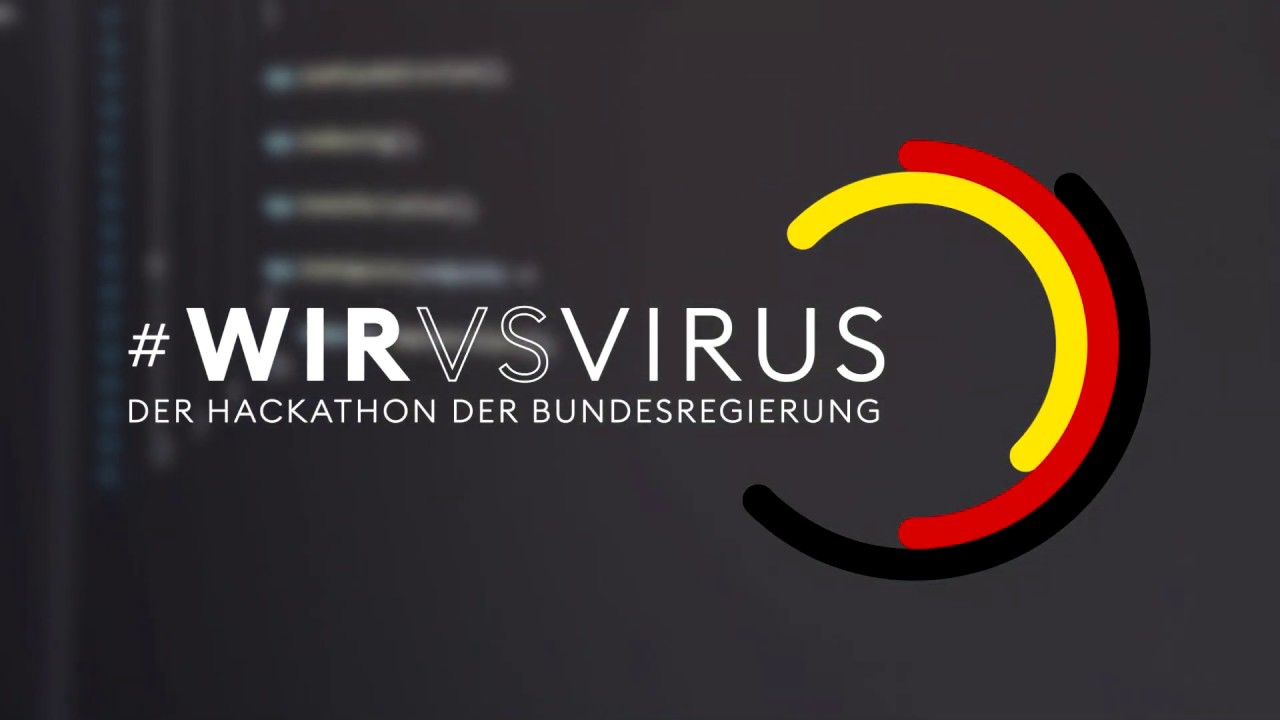On March 20 and 21, 42,968 people participated in the hackathon #WirvsVirus (WevsVirus) in Germany. It was the largest digital ideas competition in Germany to date.
Through this hackathon, the federal government, in conjunction with several professional associations and NGOs, invited the public to imagine and implement digital tools to address a range of problems revealed by the epidemic and "challenges" to be met.
Many developers had registered to take part, but also marketing, logistics and creative specialists.
In the days leading up to the hackathon, several hundred challenges were listed on a platform: food delivery, distribution of medical supplies, improvement of the testing process, organization of childcare services, respect for containment, respect for social distancing, neighborhood solidarity, the fight against fake news, monitoring of the epidemic, real-time location of free hospital capacity nationwide, visibility of "improvised" distance learning tools, crisis communication, protection of vulnerable groups, and mental health in isolation.
Teams, with different skills, formed online to tackle one of these challenges. They communicated and collaborated via Slag and Devpost and other online tools. 2,900 experts ("mentors") were available online to provide answers and guidance to participants.
With more than 40,000 participants, capacity limits were quickly reached on the platform: participants sometimes had to be patient to exchange with each other.
Some of the ideas that have emerged include
- an application that allows to check if a person is really at home: not by means of GPS, but by asking him to take a picture of an object at home twice a day. Thanks to machine learning, the application quickly recognizes whether the photo was really taken in the same apartment.
- a social distancing data dashboard, where citizens can observe in real time if and how social distancing is working, for example using aggregated movement profiles.
Helge Braun, Director of the Federal Chancellery, assured the audience after the event on Sunday evening that the federal government "intends to implement the ideas that have emerged. The selected projects will not receive direct financial support, but the government has promised to support their implementation in other ways.
What made #WirVsVirus truly unique was the fact that the participants were all confined. Another highlight was the high number of women.
The initiative was supported by the D21 initiative, tech4German, Impact HUB Berlin, Social Entrepreneurship Netzwerk Deutschland SEND, Project Together, Prototyp Fund and Code for Germany. It was sponsored by Dorothea Bär, the Federal Government Commissioner for Digital and Helge Braun, Director of the Federal Chancellery.
.
Références :





